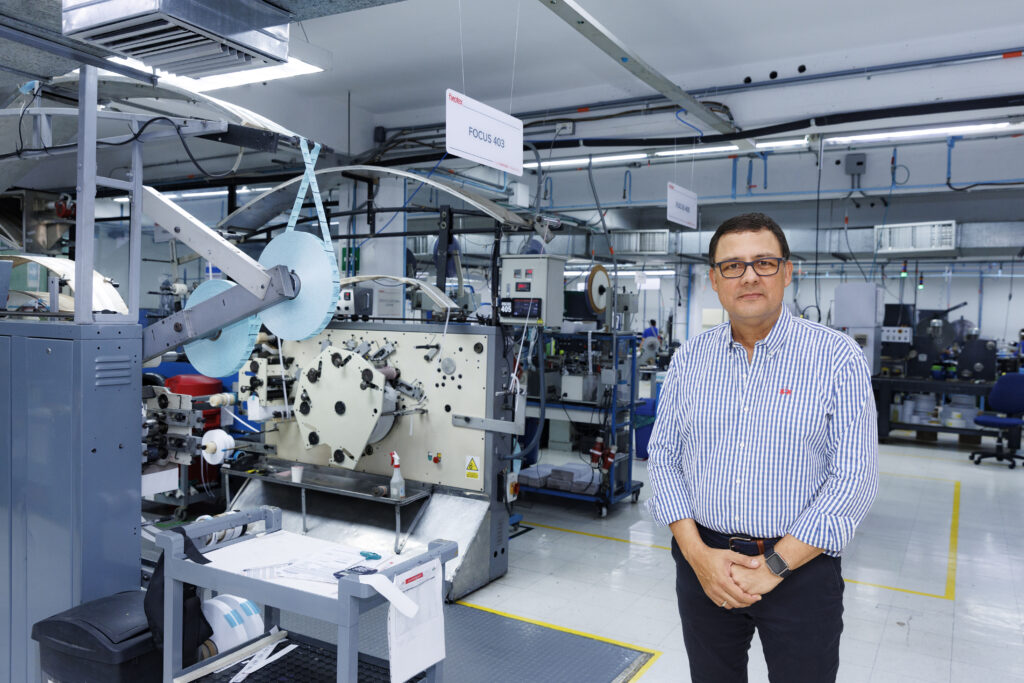Why Barranquilla companies are investing in South Florida
For business between Barranquilla and the U.S., Florida shines as the No. 1 gateway. That’s true for Colombian producers sending goods north. It’s also the case for larger companies from Barranquilla that increasingly are setting up operations in greater Miami to reach U.S. and global clients more easily.
Once Colombian exporters have a large enough client base in the U.S., they often opt to open a sales or marketing office – or even a specialty factory – inside the U.S. itself to be closer to North American customers. They also find it’s sometimes simpler to run marketing for the Americas from Miami, given the area’s role as a hub for business throughout Latin America.
Consider the examples of Fintotex, a maker of labels for clothing, and Procaps Group, a producer of pharmaceuticals. Both were started by immigrant families in Barranquilla, expanded through exports, and today, have significant operations in South Florida.
You may be wearing Finotex products right now. The company makes labels for Calvin Klein, Dickies, Hanes, Fruit of the Loom, and other major brands, says general manager Fabian Duque. Founded in Barranquilla in 1984, it opened a small factory in Miami in 1989, mobilizing South Florida’s superior international logistics to supply apparel producers in Central America and the Andean Pact nations of South America. Back then, Colombia’s international logistics were not well developed, he says.

Over time, Finotex also launched factories throughout the Caribbean Basin to be close to the apparel plants using its labels there. And as U.S. brands expanded production in China and Mexico, Finotex set up factories there too, says Duque. Today, the family-owned business employs about 1,000 people worldwide, operating 10 plants globally making printed and woven labels, hangtags, and heat transfers. In Miami, about 25 people handle sales and marketing for U.S. and Caribbean Basin markets and some international logistics.
“It’s a big competitive advantage to have a commercial office in Miami to reach the major brands,” says Duque. “Many people feel more protected by U.S. law when a U.S. office operating under U.S. law handles their brand.”
ProCaps, meanwhile, is so active in North America that it’s set up two factories in South Florida to produce pharmaceuticals and supplements. An immigrant family from Poland started the venture in Barranquilla nearly 50 years ago, opening leather tanneries that spun off such byproducts as gelatin for medicine capsules.
Today, ProCaps has offices in 13 countries, with factories in Colombia, El Salvador, Brazil, and the U.S. Its stock trades on the Nasdaq exchange, and net revenue reached $410 million in 2022. Keen on innovation, the company holds 43 patents, with another 48 pending, says attorney Marcela Carvajalino, vice president of corporate affairs.

In 2021, ProCaps bought an 86,000-square-foot factory in West Palm Beach to make soft-gel pharmaceuticals and is now developing a factory in Broward County to make its Funtrition-brand gummies. While the company has had U.S. Food and Drug Administration (FDA) approval since 2009 for its Colombian factories to export prescription products to the U.S., demand is so strong for some items that it makes sense to make them in Florida both for U.S. sale and export elsewhere, says Carvajalino.
“US production opens opportunities in other regions with which the U.S. has free-trade accords or other protocols for sale of pharmaceuticals and nutritional supplements,” including Mexico, says Carvajalino. ProCaps may well expand U.S. manufacturing later, as it adds product lines, such as cancer medicine. “We started our business with exports,” says Carvajalino. “Our vision is global.”












